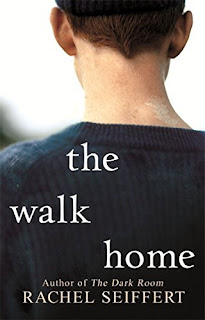The Walk Home - Rachel Seiffert
Rachel Seiffert made her mark with The Dark Room (filmed as Lore) and The Way Home similarly deals with social upheaval, family troubles and absent parents, but the subject seems closer to home this time and the situation rather more complex. The focus is divided between Graham and Stevie (the connection between them soon becomes clear), Graham meeting Lindsay, a young 17 year old girl, while playing with his Drumchapel Orange Lodge band in Co. Tyrone in Northern Ireland. When the girl turns up pregnant in Glasgow, the young couple try to make a go of starting a family and keeping it together, but old traditions, the past and family troubles prove hard to put behind them.
Surprisingly, or perhaps not, Seiffert doesn't wallow in the misery and there's precious little conventional violence in The Way Home. The violence is of different kind, the kind inflicted on families and individuals who strive to better their lives and escape from the trappings of the past and their community. A lot is left unsaid, but suggestions and implications are left open, in particular with relation to Lindsey's family in Northern Ireland. The story doesn't go there, but you can tell from the young girl's responses to her background and her speed at leaving home, that there's a lot there you don't want to get into.
The Walk Home is, I found, an incredibly sad book. The ending is pretty much a killer, but there's a deep existential sadness related to these family issues that suffuses the whole book. It's not a pleasant or a light read, it doesn't find any easy answers or resolutions for its characters, and the outlook is quite bleak, but it's an involving and authentic look at the lives of a community whose voice and whose problems are often misunderstood, if they are considered at all.




Comments
Post a Comment